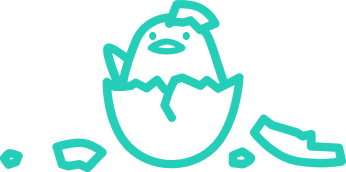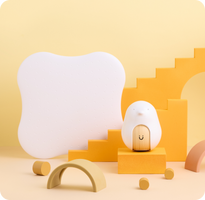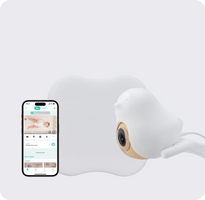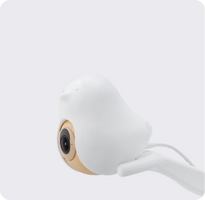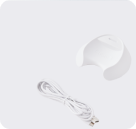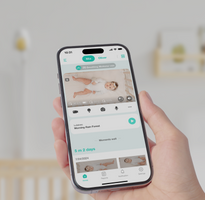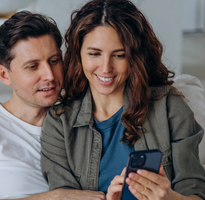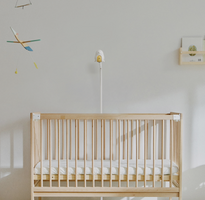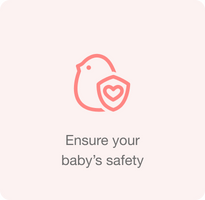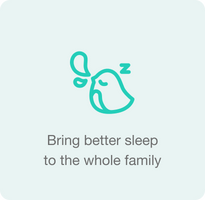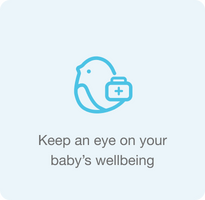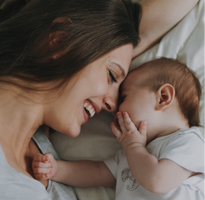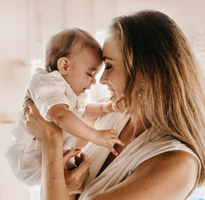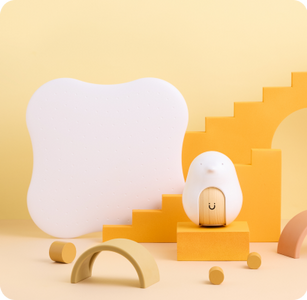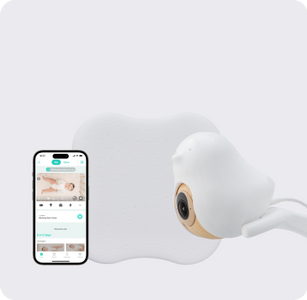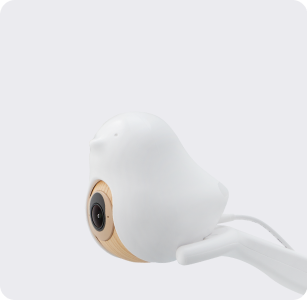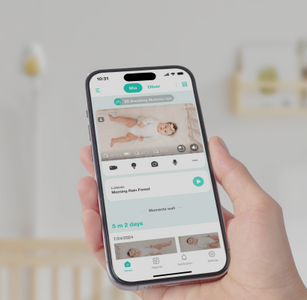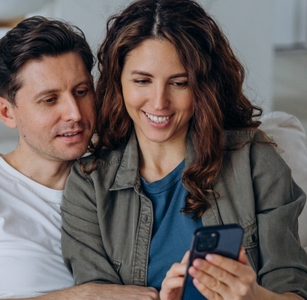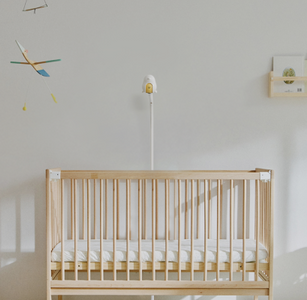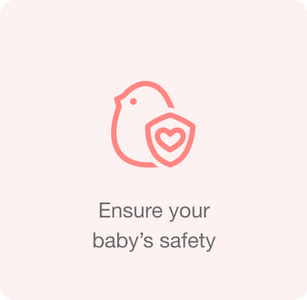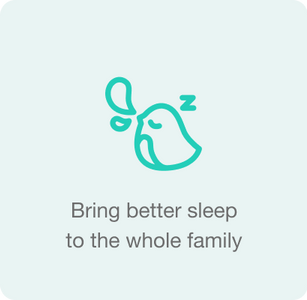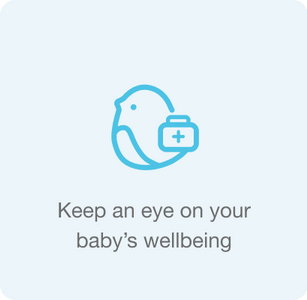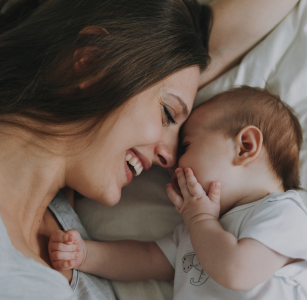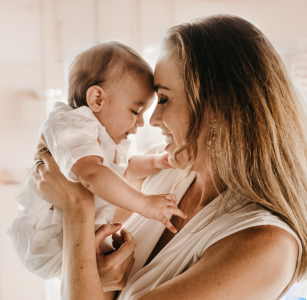Coronavirus and Pregnancy: Top 10 COVID-19 Myths About Moms and Babies Debunked
With a growing number of sources talking about the Coronavirus outbreak, we felt it was important to break down Coronavirus and Pregnancy and debunk the Top 10 COVID-19 myths about moms and babies.
With the Coronavirus spreading and news outlets blasting possible outcomes, it’s important to take a look at what this COVID-19 outbreak means for Coronavirus and pregnancy. Specifically, the myths that are now held by many families regarding the COVID-19 virus and its effect on women and babies. This disease is new and studies about it are still in development so as we find out more about it, here are the things you might still be confused about: the Top 10 Coronavirus myths debunked (specifically for pregnancy and babies).
If you’d like to check out our sources or download our infographic, scroll to the bottom of this post.
Note: We are not medical experts and do not give medical advice. All the myths in this article have been taken from reputable medical sources. For any concerns, please visit the CDC or call your physician.
MYTH #1 Pregnant women are more susceptible to infection, or at increased risk for severe illness, morbidity, or mortality with COVID-19

Why is this a Coronavirus and pregnancy myth? Well, it’s a partial myth. While getting Coronavirus during your pregnancy is NOT LIKELY to cause a fatality of either mom or baby, pregnant women have weaker immune systems, so they might be more at risk of catching any contagious disease, including COVID-19. According to Roger Shapiro, professor of immunology and infectious diseases at Harvard Medical School, “There’s some illnesses that pregnant women are more susceptible to and we do not know right now if COVID-19 is going to be one of those.”
Your immune system is slightly suppressed thanks to the fact that you're growing a human, but if you do get this particular illness, it's very unlikely that it will severely compromise your health or your pregnancy.

MYTH #2 If you're pregnant and contract Coronavirus (COVID-19) Your baby will also be born with it
This type of transmission is called “vertical transmission” and as to whether or not it happens inevitably for moms and fetuses with Coronavirus (before, during or after delivery) is, as you might expect this early in the stage of the disease, still mostly unknown.
Don’t get frustrated yet though!
According to our sources, preliminary testing on infants born to mothers with COVID-19, none tested positive for the virus that causes COVID-19. So, despite it not being off the table that vertical transmission can happen, especially after a baby was already born with Coronavirus. Let’s remember though that the baby recovered within a couple of weeks without treatment, so as far as vertical transmission being a reason to panic, we’re going to say not quite yet.
This means that so far, coronavirus and pregnancy is still safe in the realm of possibilities for illness and pregnancies and not a reason to panic whatsoever.
MYTH #3 Coronavirus (COVID-19) can be transmitted by breastfeeding

Whether or not you’ve been diagnosed with the novel Coronavirus (COVID-19) and you want to breastfeed your baby, breast milk hasn’t been proven to carry the disease, nor has amniotic fluid. That’s great news! In fact, if they’re sick in general (Corona-related or not) sick moms should still breastfeed because the milk is full of exactly the nutrients and antibodies that baby will need to stay healthy.
Where’s the catch?
Despite the fact that you should still breastfeed your baby, the way that you do it may have important effects. If the infected parent decides to breastfeed directly (not pumping) the CDC recommends that she wear a mask and take other precautions to not cough or sneeze on the baby and wash before and after feeding. If pumping, the washing should occur before touching any bottle parts or the pump itself, using the recommendations for cleaning the pump after each use. If possible, a mother can allow a family member who is not infected to feed the baby.
MYTH #4 Wearing a surgical mask is the best way to protect yourself against Coronavirus

Despite the peak in purchases of surgical masks happening all over the world, the CDC actually doesn’t recommend healthy people to wear face masks to protect themselves from respiratory illnesses (including the novel Coronavirus). If specifically told by a physician or healthcare professional, wear a mask. Otherwise its use should be limited to those who have the novel Coronavirus or are showing symptoms. This protects others from getting it. Others who should wear the mask include health workers and those caring for patients at home or in facilities. Coronavirus and pregnancy isn't more more less likely depending on whether or not you wear a face mask.
To this day, you’re much more likely to get the flu than get the new coronavirus. This means, as precautions to staying healthy during pregnancy during the Coronavirus outbreak, get a flu shot. The flu is actually proven to pose a danger to pregnant women and babies. Your baby can get a flu shot as young as 6 months old.
More than wearing surgical masks, washing your hands with soap and water (roughly as long as it takes to sing your ABC’s) and avoiding touching your face can make a big difference.
Finally, keeping a healthy routine, eating well, getting exercise, and sleeping enough will all help keep your immune system healthy and keep you protected.
Are you a mom trying to keep baby safe while they sleep?
Sleep safety 101
Check out our pediatrician/ Co-creator of Cubo Ai's 12 FAQs About Baby Sleep Safety, 3 Risks of Baby Sleeping on Stomach, 4 Tips for Improving Baby Sleep Safety and more!
MYTH #5 If you order products from China, the packaging puts you at risk of infection

Despite a province in China being the origin of the disease, the country’s link to the disease gets more and more distanced as the outbreak spreads to other major cities. Since the outbreak, many operations including manufacturing have paused in China until there is more control of the disease. Still, even for factories that continue to work, there is absolutely no evidence at this point that imported goods, packaging, etc. can transmit the disease.
So far, the transmission of COVID-19 has been mainly through respiratory droplets so when it comes to the novel coronavirus, your packages from any country are still safe for you to open. So if you’re pregnant and worried about the Coronavirus making its way to your home via your newly-ordered baby products, rest easy, you can still deck out your baby’s nursery.
MYTH #6 You don't have to have contact with a person infected with Coronavirus to contract it

Given that Coronavirus is spread via respiratory droplets and they can only go so far, the reach is actually quite small. To contract the disease, you would have to have CLOSE contact with someone who has it. How is “close contact” defined?
“a) being within approximately 6 feet (2 meters) of a COVID-19 case for a prolonged period of time; close contact can occur while caring for, living with, visiting, or sharing a health care waiting area or room with a COVID-19 case
– or –
b) having direct contact with infectious secretions of a COVID-19 case (e.g., being coughed on)”
So, if you’re not a health care worker dealing directly with infected patients or in the same small room with someone who has been infected for an extended period of time, it’s very unlikely that you’re going to get it from someone who just crossed the street in the opposite direction as you at the same time.
MYTH #7 The most vulnerable populations are elderly people and children

When a new disease hits, we immediately think that it’s something like the Titanic, and we place our women, children and elderly on the rafts to get away first. While that’s a good measure, with the Coronavirus we have to be careful to not lump everyone in the same category. The novel coronavirus causes mild or no illness to very young children. In fact, like we said before, even the baby who was born with the virus recovered within a couple of weeks without treatment.
So, who is the most vulnerable population?
Well, the myth is right about one thing. Those over 70 carry a much higher risk of getting infected and suffer more severe, and possibly fatal symptoms. Other criteria that put you at risk of getting fatally ill due to Coronavirus regardless of your age include underlying conditions such as diabetes, obesity, heart disease, lung disease, kidney disease or anything that would cause you to have a weakened immune system.
This means that even if you do get sick, your chances of it being fatal are really small.
MYTH #8 If your child is carrying Coronavirus, they'll show symptoms within 10-14 days

They might not show symptoms at all! In addition to being less vulnerable to get the disease, children are also less likely to show symptoms if they are infected. This is a double-edged sword. On the one hand, it means your child is almost certainly going to be fine, even if infected. On the other, it means if they’re infected you might not know it for a long time and they’ll continue to be contagious and cause possible infection to other people around them who could be more vulnerable to the disease.
If people around your baby suddenly start being diagnosed, it's time to talk to your physician about the possibilities of getting your baby tested.
MYTH #9 If you think you or your baby are sick, you should immediately go to the ER

WRONG!
If you’re worried about Coronavirus and pregnancy, there’s one question you must have the answer to. What are the Coronavirus symptoms? First ones that will show up are fever and a dry cough, no runny nose nor a wet cough. Despite the virus showing “flu-like” symptoms, watch out especially for the high fever and cough after which you can take action. The best thing to do this time around won’t be go to the E.R. for a variety of reasons.
What should you do if you think you have Coronavirus?
Caroline Chen from Propublica suggests that, if you think you’re pregnant with Coronavirus, or if your baby might have it, you call your doctor or your primary care physician. If you don’t have one, call a local clinic or hospital. They’ll ask you some relevant questions so they can help you figure out if you’re a likely candidate for the virus. It’s flu season and with the outbreak and panic of the Coronavirus so the emergency rooms are full as it is.
According to Chen, your doctor might:
- Ask you to self-quarantine and keep them posted on the development of your symptoms in order to test you.
- Ask you to come in to get tested for something else since your symptoms don’t exactly match those of the Coronavirus.
- Test you for the coronavirus in a specific location as a “person under investigation (PUI). They’ll take a swab and send it to a lab.
MYTH #10 You can "kill" the Coronavirus with alcohol, UV lights, Chlorine, or other methods

Nope.
Despite the talk about a variety of cures, best practices, super foods and anti-virus measures to take, none of the following can “kill” or “prevent” the novel Coronavirus:
- Hand dryers cannot kill the new coronavirus. To protect yourself, you should clean your hands with an alcohol-based hand rub or wash them with soap and water then dry with paper towels or a warm air dryer.
- UV lamps should not be used to sterilize hands or other surfaces as the UV radiation can cause irritation.
- Spraying alcohol or chlorine on your body can’t kill the virus. In fact, it can be harmful to the body. You may use them on surfaces to disinfect, under the correct circumstances.
- There are no vaccines, foods, drinks, etc to help you prevent Coronavirus. Despite some foods helping boost your immune system, the best practices to stay healthy are as seen on #4 of this post.
Want to find more about us? Find us on Facebook or Instagram!
Sources for this post:

Cubo Ai
Smart Baby Monitor, bird, techie, baby guru, and sleep-safety enthusiast. Cubo has a keen eye for detail, loves baby photography, and never sleeps on the job. You can find Cubo in thousands of nurseries around the world and here on the blog helping parents learn more about the topics they care about.
